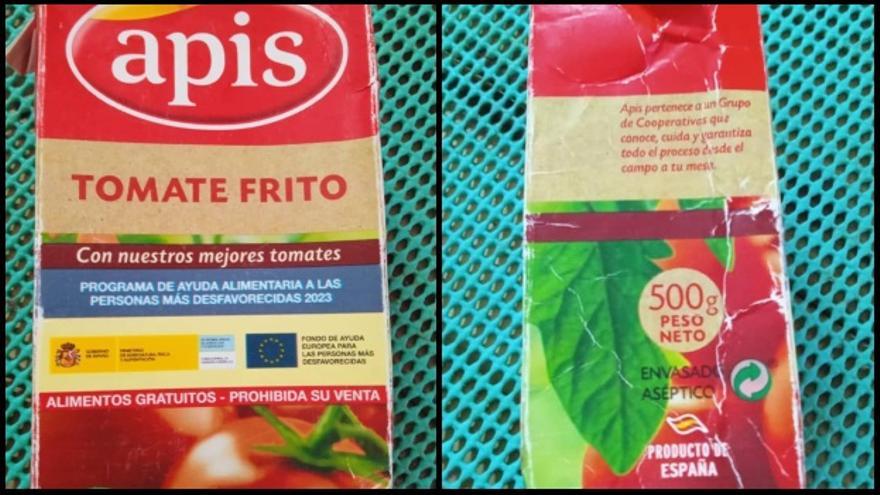
![]() 14ymedio, Juan Diego Rodríguez, Havana, 17 January 2024 — The merchandise, some 500-gram boxes of tomato sauce, “Are of good quality, each one for 300 pesos and I have five. If you buy them all I will give you a discount,” explains the informal seller, dressed in a cap and backpack, who knocked on 72-year-old Niurka’s door in the Central Havana neighborhood of San Leopoldo. A regular in the area, the merchant has built a clientele through the years, based on trust. “Neither snitches nor people who want to do business on credit” is his motto.
14ymedio, Juan Diego Rodríguez, Havana, 17 January 2024 — The merchandise, some 500-gram boxes of tomato sauce, “Are of good quality, each one for 300 pesos and I have five. If you buy them all I will give you a discount,” explains the informal seller, dressed in a cap and backpack, who knocked on 72-year-old Niurka’s door in the Central Havana neighborhood of San Leopoldo. A regular in the area, the merchant has built a clientele through the years, based on trust. “Neither snitches nor people who want to do business on credit” is his motto.
But today, security was more necessary than other times. It indicated on the tetrapaks not only that it was a product from Spain of the Apis brand, but that it was merchandise that had arrived in Cuba through the European Aid Fund for the Most Disadvantaged People (Fead). On the packaging, in capital letters, it warned: “Free food, sale prohibited.” Niurka extended three 100-peso bills, took the box and pretended that she had not read the sign or seen the blue flag with its little stars in a circle.
Where did the merchant get the tomato sauce? Did he steal it from a state warehouse or did the families who benefited from the aid give it to him to get some cash? Questions flooded into Niurka’s head as soon as she closed the door. But it could be said that, whatever the case, she was also “a vulnerable person,” with a meager pension and two grandchildren to care for. She immediately opened the box, poured the contents into the pan where she already had some sausage slices and prepared, at full speed, some spaghetti for the children who would soon arrive home from school.
The module that has recently arrived in Cuba from Spain includes rice, cooked chickpeas, canned tuna and meat, pasta, fried tomato or cookies.
Fead provides food or basic material assistance to people who need it most in nations with high rates of poverty and economic insecurity. Support consists of food, clothing, footwear and other essential products for personal use, such as soap and shampoo. But each European nation decides the type of aid it wants to provide, and how to obtain it and distribute it.
The module that has recently arrived in Cuba, coming from Spain, includes rice, cooked chickpeas, preserved tuna and meat, pasta, fried tomato, cookies, vegetable salad, soluble cocoa and oil, a composition similar to the one that has reached other Latin American countries. The intention is that it land on the table of those families who have been plunged into misery by inflation, low pensions, physical disabilities of some of their members, and old age.
However, the mechanism does not escape tricks and the rerouting of resources. There is also no way to control whether beneficiaries use these free foods to put on their own plates, or end up selling them on the black market. With the 300 Cuban pesos from selling a box of tomato sauce, someone can probably pick up some food or vegetables that will give them more value on their table.
Due to those inextricable paths that life takes, today Niurka ate thanks to European aid, although her name is not registered in any humanitarian program.
Translated by Norma Whiting
____________
COLLABORATE WITH OUR WORK: The 14ymedio team is committed to practicing serious journalism that reflects Cuba’s reality in all its depth. Thank you for joining us on this long journey. We invite you to continue supporting us by becoming a member of 14ymedio now. Together we can continue transforming journalism in Cuba.
;
